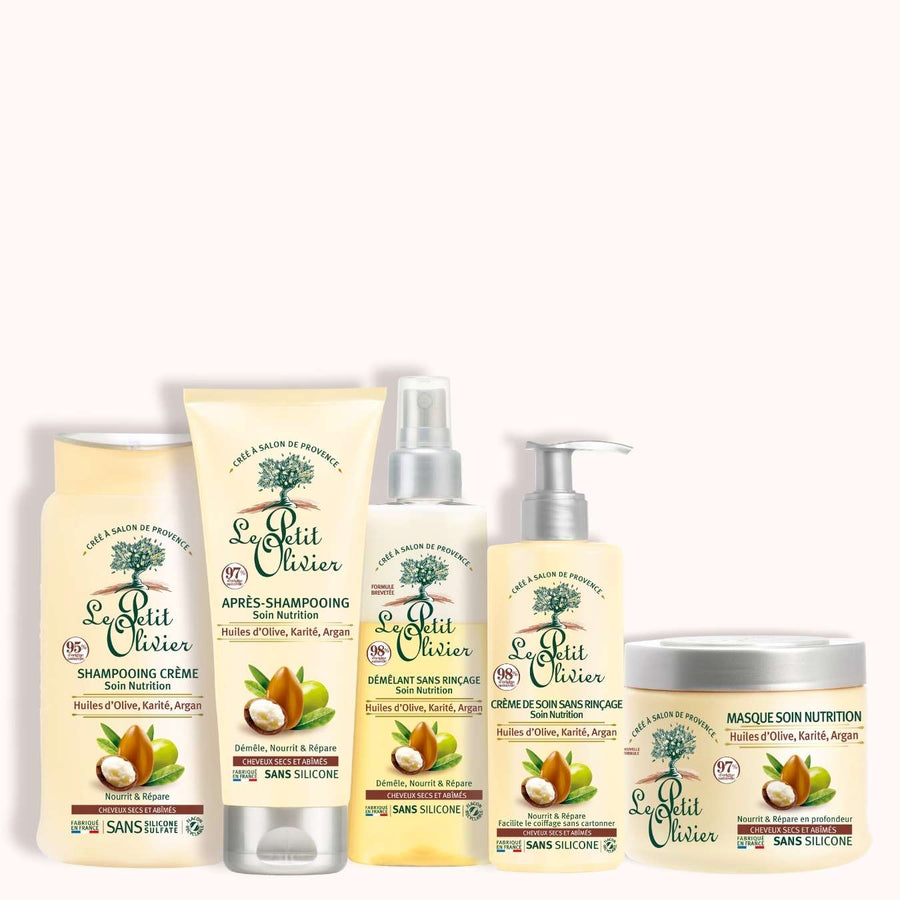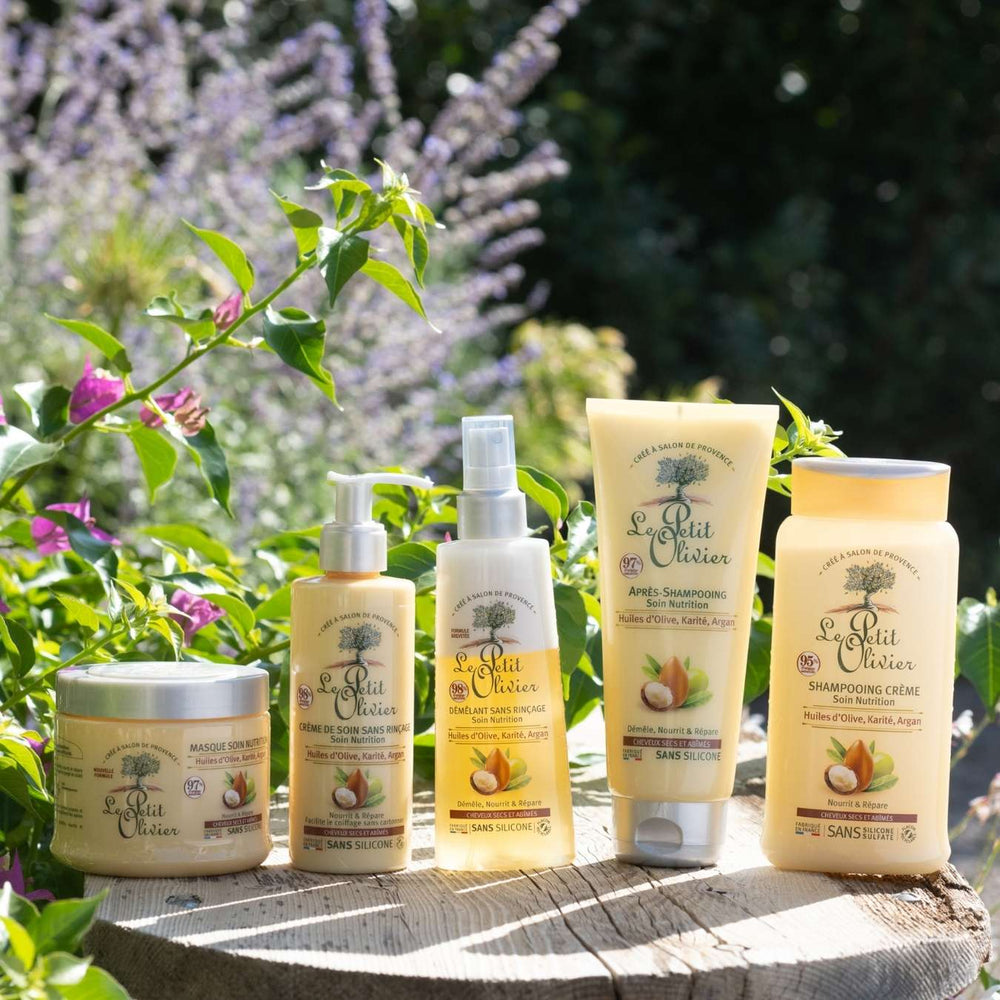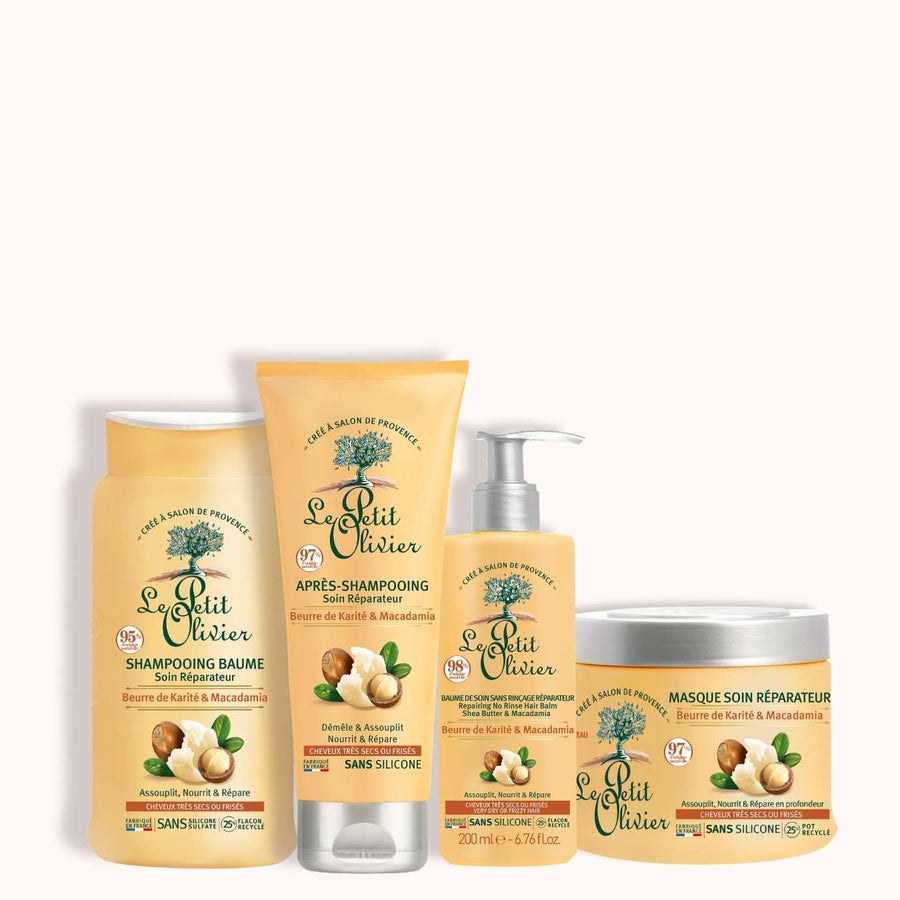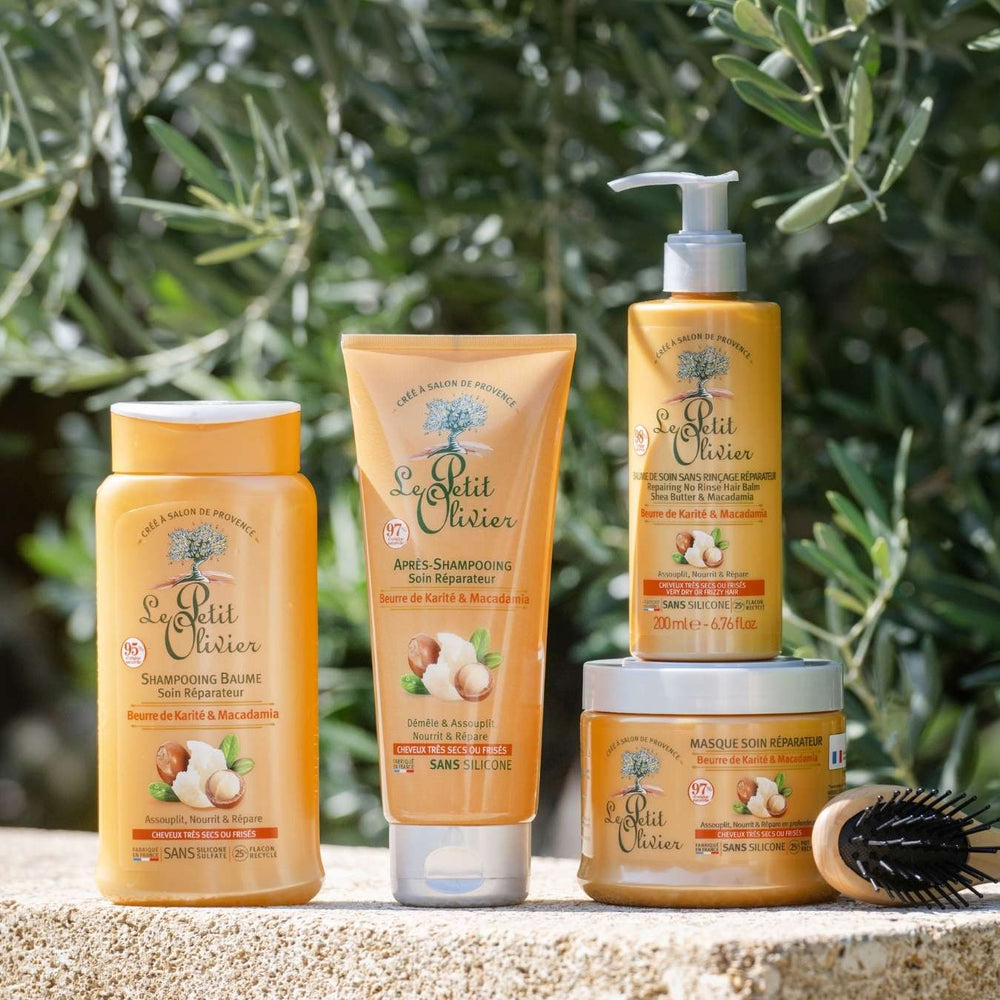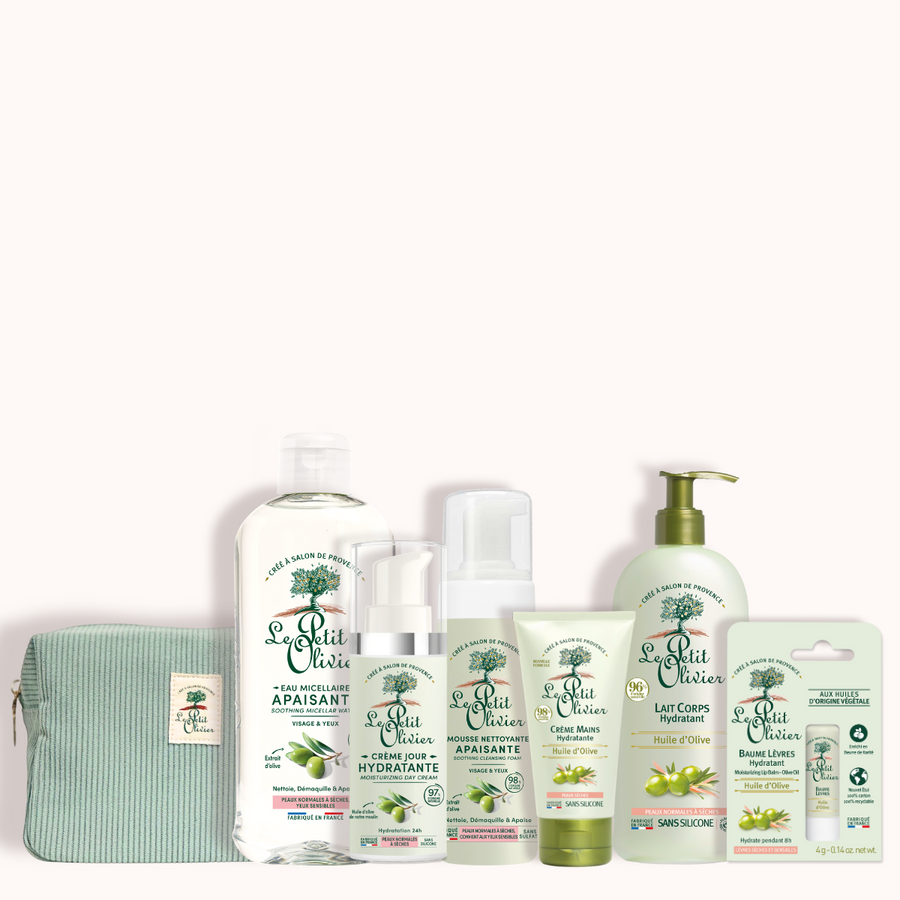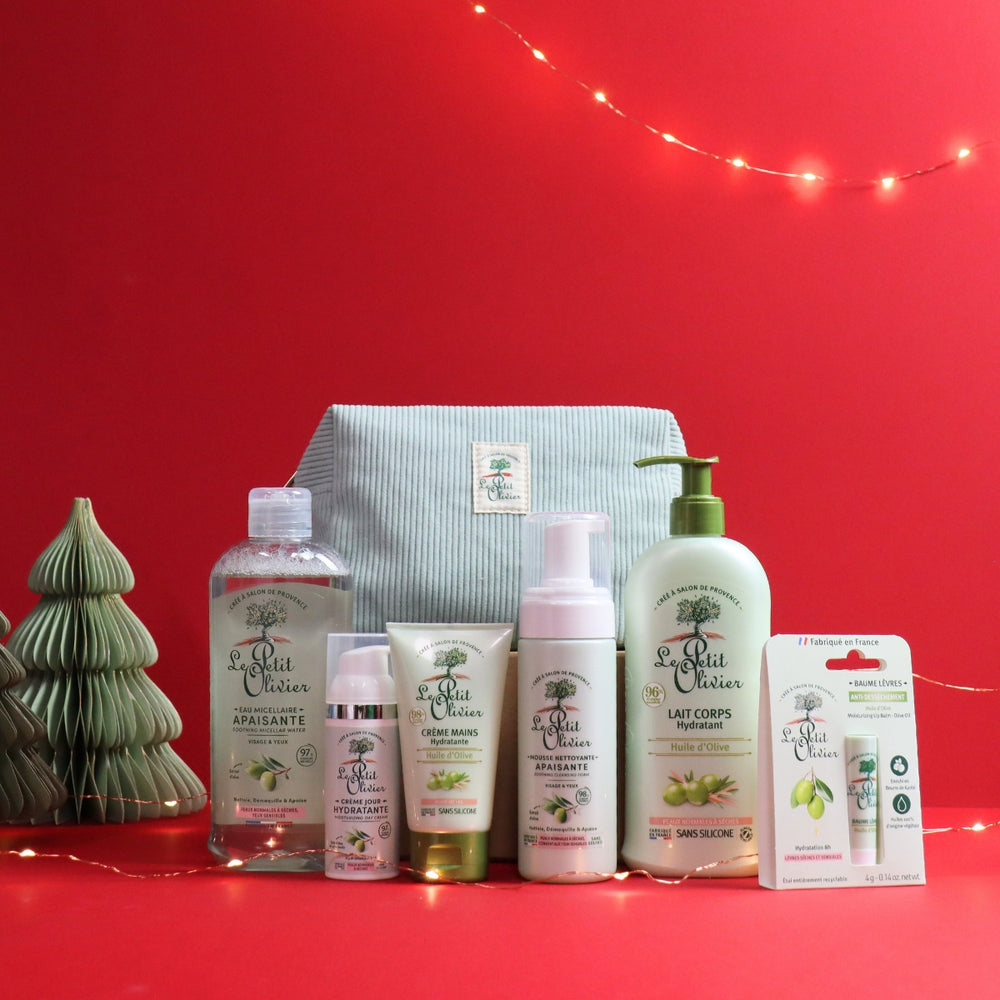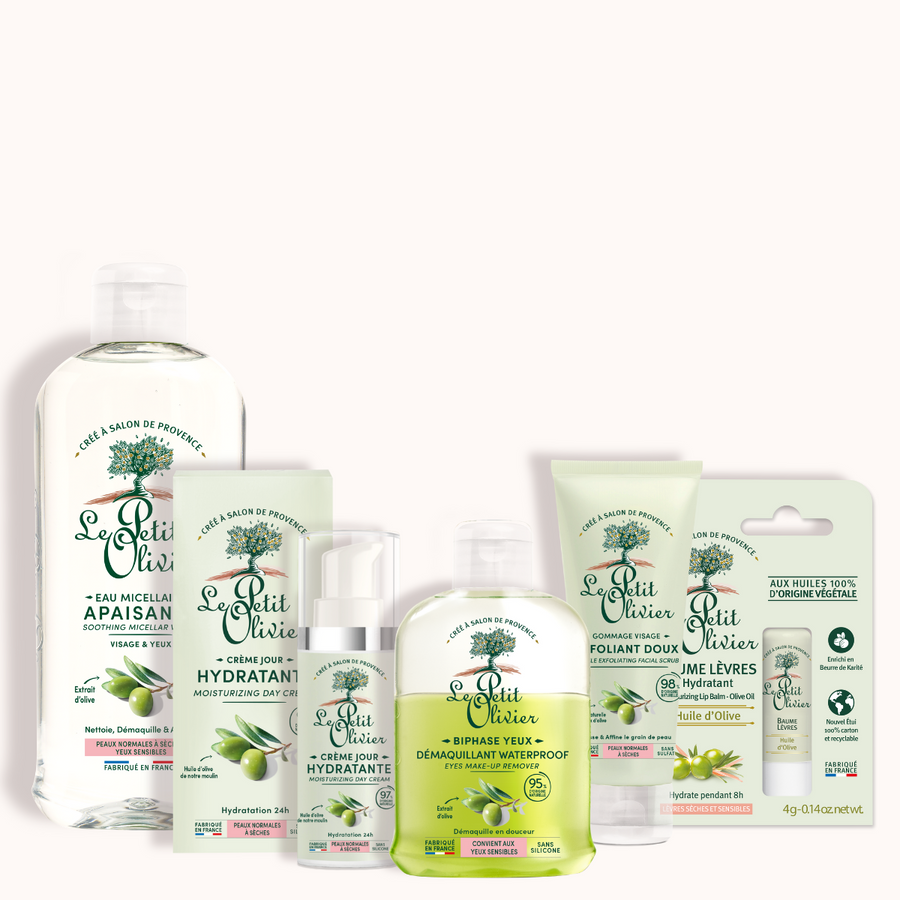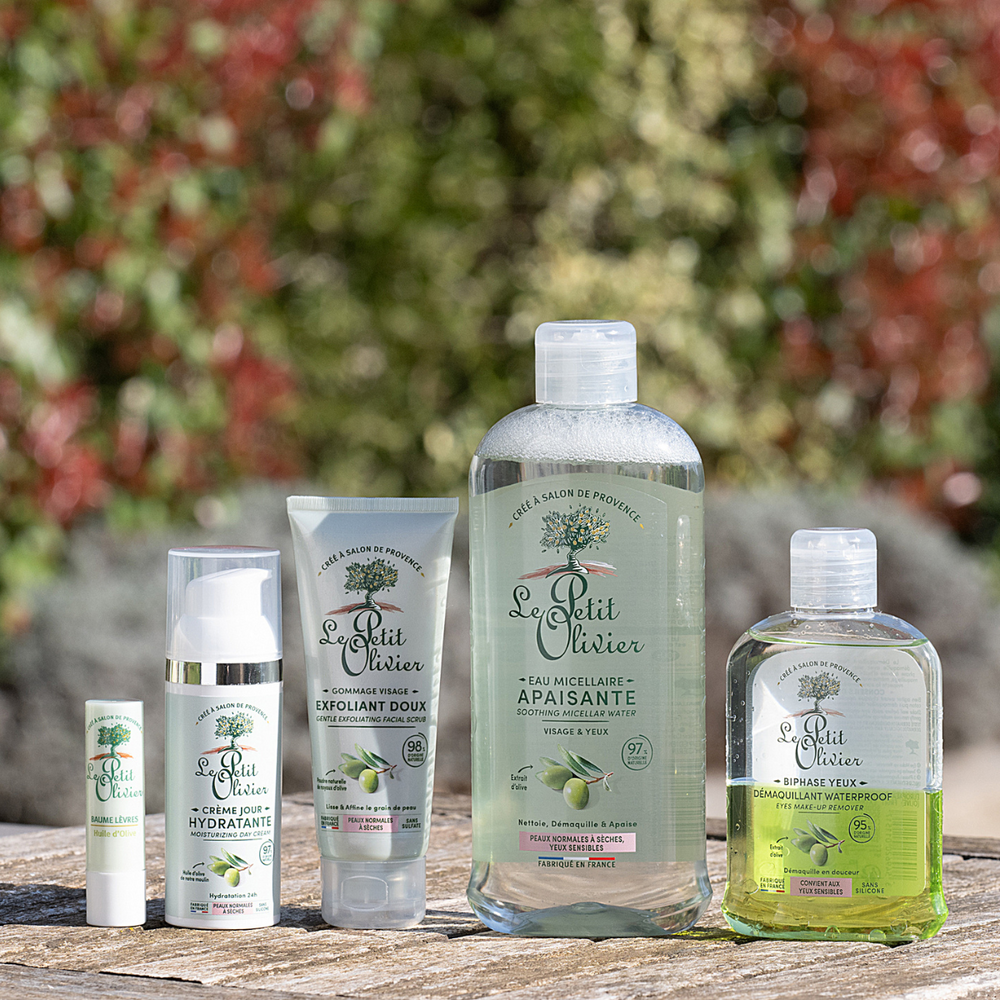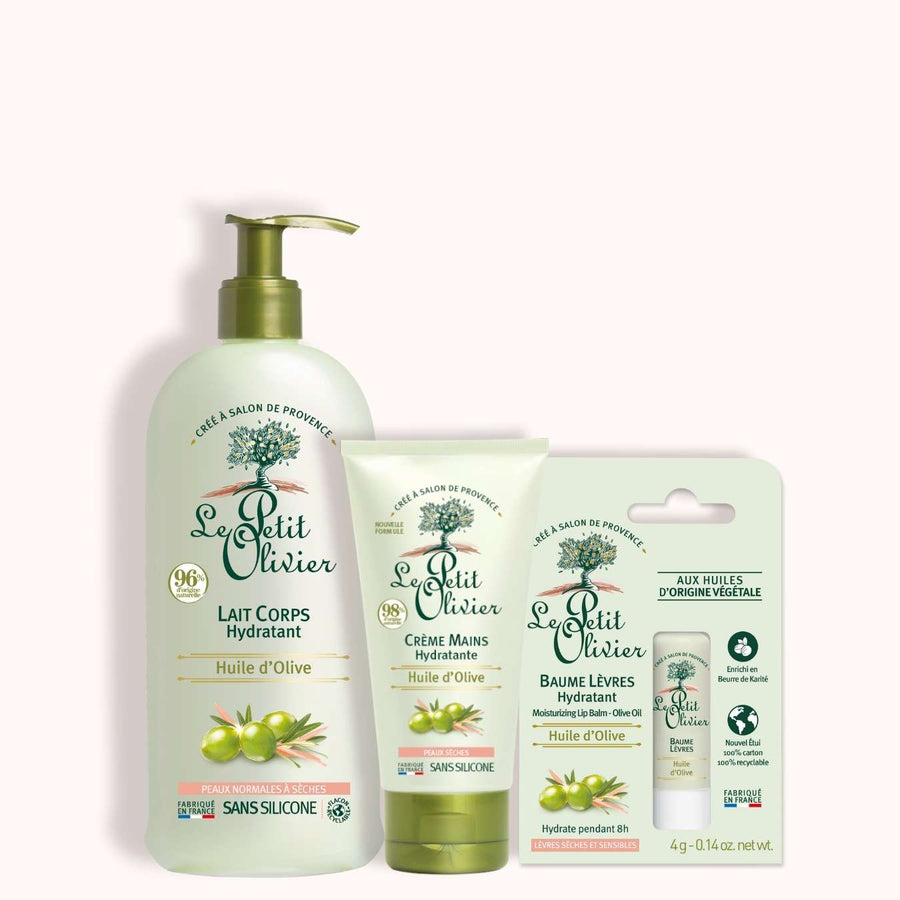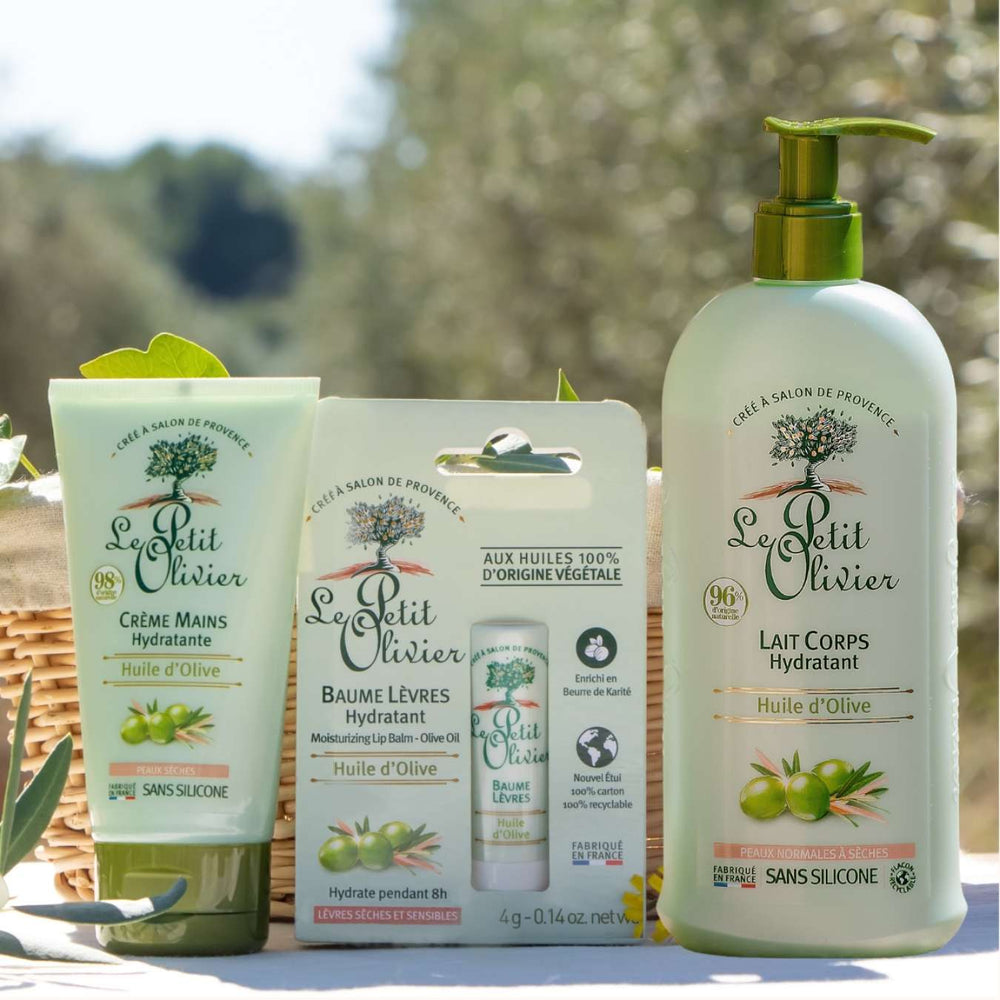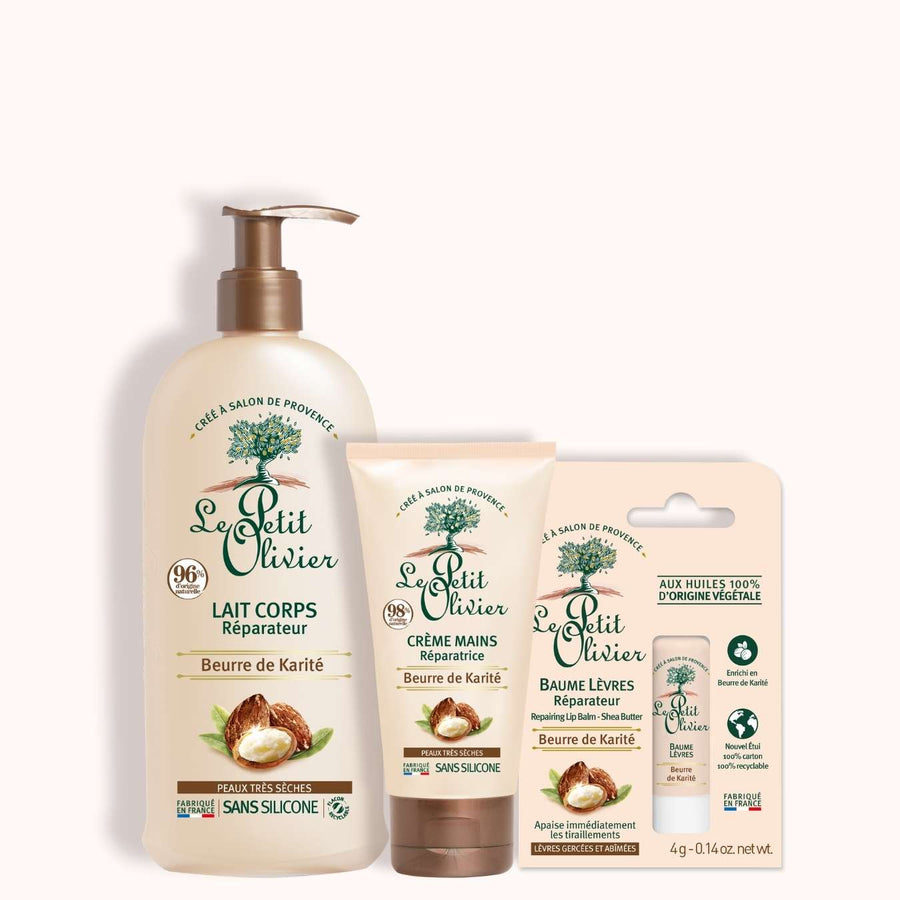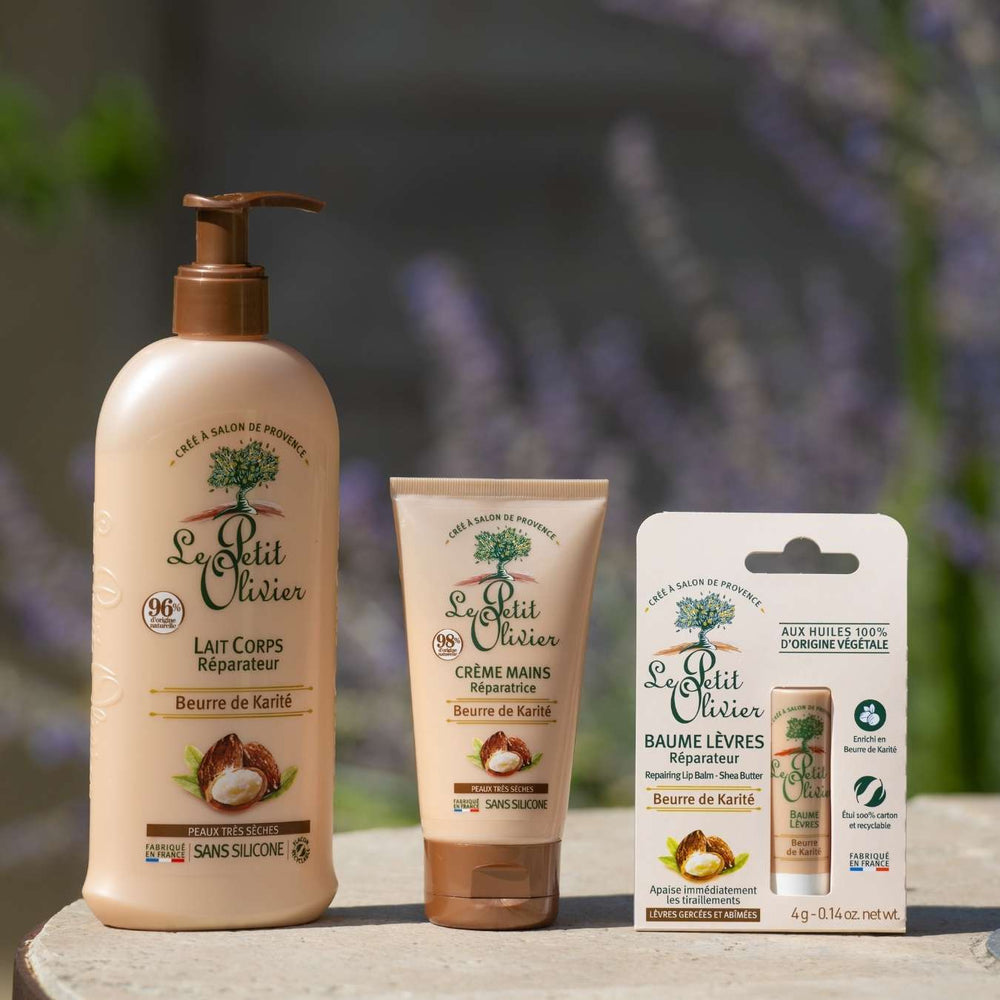What are the benefits of using a hair conditioner?
Hair detanglers prove to be invaluable allies in your hair routine, offering much more than just a solution to knots. By integrating a detangler into your hair care routine, you discover a new dimension of softness and protection for your hair. These products work by forming a protective barrier that reduces breakage and preserves hair's natural texture. But how do they really work? What active ingredients give them their beneficial properties? And above all, how do you choose the type of detangler that best suits your specific needs? To find out more about these essential aspects, take a look at our page on"hair detanglers: what you need to know". Whether your hair is fine, thick or curly, each type has its own unique benefits. However, it's essential to adopt certain precautions to avoid overload or adverse reactions. Finally, we'll explore the difference between detanglers and conditioners to guide you in optimizing your hair routine.
The benefits of using a hair conditioner
Protection against tangles and breakage with hair conditioner
Imagine yourself, comb in hand, faced with unruly hair that seems to defy all attempts at styling. A good hair detangler could be your secret ally in this daily battle. Thanks to its formula rich in specific active ingredients, it envelops each hair fiber in a protective film, reducing the appearance of tangles and preventing breakage. This protective action is particularly valuable for those with fragile hair or hair prone to mechanical damage. By facilitating the glide of a comb or brush, detangler minimizes stress on the hair fiber, preserving its integrity.
Improved hair texture and softness with detangler
The application of a detangler not only facilitates styling, it also transforms the very texture of your hair. The active ingredients in these products act as deep conditioners, restoring elasticity and suppleness to your hair. You may notice that your strands are not only easier to style, but also softer to the touch. This velvety feel comes from the sheathing action of the detangler, which smoothes the hair cuticle, giving it a natural, radiant shine. What's more, a softer scalp contributes to greater comfort during daily brushing.
How does a hair conditioner work?
Active ingredients in hair conditioners
In the world of hair care, detanglers stand out for their ability to transform stubborn hair into a cascade of silky softness. But how does it accomplish this feat? The answer lies in the richness and diversity of the active ingredients it contains. Film-forming active ingredients wrap each hair fiber in a fine protective film, making combing easier and reducing friction. In addition, softeners provide suppleness and moisture, making hair not only easier to comb, but also pleasant to the touch. Finally, for those whose hair is put to the test by external aggressions, restructuring agents such as keratin or wheat proteins strengthen and protect the hair fiber.
The process of applying conditioner to hair
The art of applying a detangling product relies on a few simple but essential gestures that guarantee effectiveness and comfort. To begin with, it's advisable to wet your hair slightly before application. If you're using a detangling spray, spray it evenly over your hair, making sure to cover all strands. Then use a wide-tooth comb to gently distribute the product, starting with the ends and gradually working your way up to the roots. Not only does this method effectively unravel without breaking, it also preserves the integrity of curls if you have curly or frizzy hair.
Types of hair detanglers and how to use them
Detangling spray, cream or oil: how to choose?
In the world of hair care, choosing the right conditioner is crucial to meeting the specific needs of your hair. Detanglers come in three main formats: spray, cream and oil. Each has its own particularities and is suitable for different hair types.
The detangling spray is particularly effective for fine or slightly wavy hair. Its light texture allows quick application without weighing hair down. Imagine stepping out of a refreshing shower, spraying a few spritzes onto your still damp lengths, and instantly feeling your strands relax as you comb through.
For those with thicker hair or hair prone to dryness, detangling cream offers a nourishing solution. It envelops each fiber in a protective veil that facilitates styling while providing softness and hydration. You may appreciate this creamy texture that penetrates deep into the hair fiber when applied after shampooing.
Thedetangling oil, on the other hand, is designed for very dry or curly hair in need of intensive care. A few drops are all it takes to transform stubborn curls into silky, well-defined spirals. By applying this type of product to damp or dry hair, you give your mane a veritable bath of softness and shine.
The right way to use each type of hair conditioner
The art of using conditioner correctly lies above all in understanding the unique needs of your hair. What benefits does conditioner bring to damaged hair?
- Detangling spray: ideal for daily use on wet or dry hair. Spray evenly over all lengths, then comb gently through.
- Detangling cream: apply to damp hair after shampooing. Distribute generously with a wide-tooth comb to cover all strands before rinsing.
- Detangling oil: use as a pre-shampoo treatment or after-drying finish. Warm a few drops in your hands, then apply to dry ends and lengths to tame frizz.
Armed with the right product for your hair type, you can not only simplify your routine, but also enhance your hair's natural beauty every day.
The benefits of detanglers for different hair types
Detanglers for fine hair: specific benefits
For those with fine hair, using the right detangler can transform your hair routine into a pleasant, hassle-free experience. These products are distinguished by their lightness, avoiding weighing hair down while providing subtle volume at the roots. Imagine styling your hair with ease, without worrying about it falling flat after a few hours. The active ingredients in these detanglers are designed to strengthen the hair fiber without overloading it, preserving an airy, natural texture. What's more, they make daily styling easier, reducing the risk of breakage when combing or brushing.
Detanglers for thick, curly hair: specific benefits
Thick, curly hair needs special attention to maintain its beauty while avoiding unwanted tangles. Detanglers designed for this type of hair offer intense hydration thanks to nourishing active ingredients that penetrate deep into each curl. You may experience a remarkable transformation upon application: your curls regain definition, become softer and express themselves fully without annoying frizz. By enveloping each strand in an invisible yet effective protection, the detangler ensures a smooth glide of the comb or fingers when styling, minimizing tension and maintaining curl integrity.
Precautions to take when using a hair conditioner
Allergies and sensitivities associated with hair conditioners
In the world of hair care, the use of conditioners can sometimes raise questions about skin reactions. Although these products are formulated to soften and facilitate styling, it's essential to remain vigilant to any allergies or sensitivities they may cause. Before incorporating a new conditioner into your routine, be sure to read the warnings on the packaging carefully. You may wish to perform a skin test by applying a small amount of the product behind the ear or on the wrist. If no reaction appears after 24 hours, you can use the product with complete peace of mind.
Some people may be particularly sensitive to certain active ingredients in detanglers, such as film-forming or softening agents. In the event of persistent scalpirritation or discomfort, it would be wise to discontinue use immediately and consult a professional if necessary. Avoid direct skin contact whenever possible during application, to minimize risk.
Finally, keep in mind that each hair type has its own specific needs in terms of hydration and protection against tangles. So always adapt your routine to your hair's unique characteristics, so that it can fully express its natural beauty without compromise.
Hair detangler versus conditioner
Different objectives and results: detangler vs conditioner
In the world of hair care, it's common to confuse the role of conditioner with that of detangler. Yet each of these products has distinct yet complementary objectives. Detanglers, as their name suggests, focus primarily on facilitating styling by reducing tangles and minimizing breakage. Thanks to its specific active ingredients, it envelops the hair fiber in a fine film that allows the comb or brush to glide smoothly through.
Conditioner, on the other hand, is designed above all to nourish and moisturize hair after washing. It works deep down to restore the hair's moisture balance, which is often disturbed by shampooing. Its active ingredients penetrate the hair shaft to provide softness and suppleness. So, while conditioner focuses on smoothing and superficially protecting each strand, conditioner works on deeper revitalization.
When to use hair conditioner versus conditioner
The question of when to use detangler rather than conditioner depends essentially on the specific needs of your hair, as well as your usual hair routine. You might consider incorporating a detangler into your daily routine if you regularly deal with tangles, or if your hair is particularly fragile when styling.
On the other hand, it makes sense to opt for a conditioner when your hair needs extra moisture or has been exposed to chemical treatments such as coloring or straightening. In this case, applying conditioner after each wash will help maintain the hair's natural softness while preserving its shine.
Some people even choose to use these two products simultaneously to optimize the benefits for their hair: they first apply a conditioner to deeply nourish, then complement with a light detangler that facilitates styling without weighing hair down. This combined approach could be perfect for demanding hair types looking to combine intensive care with everyday practicality.
We recommend these other pages:
- How to choose your hair conditioner?
- How to apply detangler for best results?
- Is conditioner suitable for all hair types?
